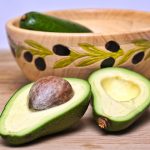Just the Basics: A Little About Healthful Eating by Joan Kent, PhD
I’m often asked what I consider the Basic Guidelines for healthy eating.
To make it simple: Start by eating LOTS of vegetables. Cover at least half the plate with them. And eat them, don’t just put them on the plate.
Eat a variety of veggies, not the same ones all the time. If you eat the vegetables when they’re in season, it will be fairly easy.
Should the Vegetables Be Organic?
Organic eating is about avoiding pesticides, not just better taste. There’s no up side to eating pesticides. Organic foods have also been shown to have higher levels of antioxidants. Those are good for health.
To find produce grown with the lowest pesticide levels, just search for Clean 15 Produce 2020. You’ll find mostly veggies on the list, with a few fruits. So you don’t need organic versions of those foods.
On the other hand, foods grown with the most pesticides can be found by searching for Dirty Dozen Produce 2020. This year, that list is mostly fruits with a few veggies. You don’t have to avoid those foods, but buy organic whenever you can.
The most important thing, though, is to eat lots of vegetables — organic or not. Just do it.
What About Fruits? How Important Are They?
Fruits & vegetables are usually lumped together, but they’re not equal.
I push for veggies. Eat at least 5 to 9 half-cup servings of veggies every day.
Eat 2 servings of fruit per day max. A serving is 1/2 cup or 1 medium-sized fruit. That’s because fruits contain fructose, a harmful sugar.
Fructose raises triglycerides, and that’s an independent risk factor for heart disease.
Fructose can induce insulin resistance. Metabolic conditions have insulin resistance in common: diabetes, high blood pressure, high cholesterol, high triglycerides, heart disease and certain cancers. Over 70% of the deaths in the US are due to one or more of those conditions.
Fructose can bring on hypoglycemia (low blood sugar) in susceptible people.
Fructose is addictive for some people.
Fructose can cause cavities.
Not least, fructose is absolutely the wrong fuel after a workout. Instead, we need a combination of starch & protein in a 3-to-1 ratio (based on grams or calories).
What Else Should We Eat for Good Health?
Protein is super important and should cover about 1/4 of your plate or so.
Protein:
- Can help boost the immune system. We can’t function without an immune system, and the immune system can’t function w/o protein.
- Provides L-glutamine. That’s the fuel the immune system runs on. It’s found in fish, chicken, beef, eggs, shrimp, crab, cottage cheese, and Greek yogurt. VEGANS: Plant sources of glutamine include chickpeas, lentils, beans, asparagus, nuts, red cabbage, parsley, spinach, collards, kale, cilantro, and radish greens.
- Can help boost muscle mass if you strength train. Because muscle is highly metabolic tissue, it offers help with weight management.
- Can help with appetite control because of the hormones it influences. One is CCK, which promotes satiety and reduces carb cravings. Protein decreases ghrelin, which tends to increase appetite and slow metabolism.
- Is key in brain chemistry. Proteins are made of amino acids. Those are the precursors of many “feel-good” brain chemicals, including dopamine, norepinephrine and serotonin.
Don’t Eat “Fake Proteins”
Nuts are mostly fat, with little protein. Quinoa is mostly carb, with little protein. Beans&rice contain lots of carb, with a little protein.
Instead, vegans would do better to use plant-based protein powders: pea, hemp, brown rice, vegetable.
One Final Point
Limit sugar and white flour. Both are addictive and trigger a high insulin response. High insulin can lead to inflammation, the root cause of most disease and virtually all chronic disease. Foods are key in controlling inflammation.
Many other things can be said about food, but let’s keep this simple.
Want more simple tips on eating for health? I would love, absolutely adore, helping you. Just visit LastResortNutrition.com and grab your free Empower Me Consult. Discover how easy getting and staying healthy can be.
Brought to you by Dr. Joan Kent, best-selling author of Stronger Than Sugar.



